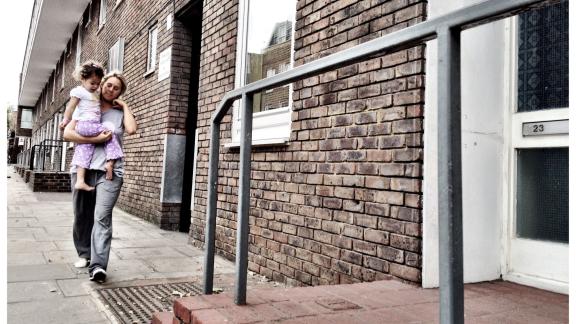Welsh NHS Confederation response to care consultation

Introduction
The Welsh NHS Confederation Health and Wellbeing Alliance was established in 2015 and consists of over 70 health and care organisations from the NHS, local government, healthcare, social care, patient organisations and the professions.
This response has been developed by the Health and Wellbeing Alliance subgroup on social care, which is chaired by Age Cymru and Royal College of Occupational Therapists.
Chapter 1: Code of Practice - National Framework for Commissioned Care and Support
We welcome the focus within the Standards and Principles of the Code on rebalancing the basis upon which the provision of care and support services are commissioned, through a emphasis on outcomes and social value and away from price. This is vital to ensuring that positive outcomes are achieved through the Rebalancing Care and Support Programme.
We welcome the emphasis contained in the Code on co-production and prevention. However, careful planning is needed to develop flexibility of service and support due to the large gap in meeting current levels of need and the projected increase due to an ageing population.
As highlighted in the co-production evaluation of the Social Services and Well-being Act, co-production is misunderstood and conveyed in an unclear way. It is not appreciated for its distinctiveness or its potential benefits compared to existing ways of working and/or is subject to measurement and evaluation in inappropriate ways. The evaluation also found reference to lack of clarity on the part of those implementing purportedly co-productive practice about how exactly individuals were to relate to each other and to structures. It would therefore be helpful to publish a set of national definitions and standards around co-production.
Commissioning teams across Wales are already under pressure to innovate services to meet the changing needs of the population. The recent report from Age Cymru on delays in access to social care for older people demonstrates these pressures and the innovation that is currently being undertaken. Achieving the aims of the commissioning framework will require a cultural shift in practice for teams across Wales, and commissioning teams in social care already have various commissioning guidelines and frameworks that they must adhere to. Currently local, regional and national guidance can have competing, and sometimes conflicting priorities.
The financial pressures on the health and care system are enormous and as such, additional resourcing has to be considered to achieve the vision of the national care service. It is unclear from the consultation documentation what resourcing will be allocated to support the cultural change needed to realise the aims of the rebalancing care and support programme. The Code requires a further focus on how commissioning can be sustainably funded in the longer term to deliver the vision of service flexibility based on people’s needs.
Commissioning teams across Wales are at different stages of their commissioning cycles and as such, a cultural change in commissioning practice will take time. It is vital that the programme plan and National Office give early attention to supporting local authorities to deliver commissioning practice that focuses on people’s care needs.
We welcome that the Code aims to provide greater consistency and transparency within the commissioning cycle. Nevertheless, there needs to be greater co-ordination of planning and support for populations at greater risk of needing urgent or emergency care to ensure greater consistency and transparency within the commissioning cycle. This should include anticipated changes over time. For example, Age Cymru’s predecessor to its latest report on delays in access to social care also highlight how the proportion of funding for older people’s social care services has reduced at the same time as levels of need have increased. The latest report showed a large increase in urgent need and an increased level of need per person overall since the previous report was published in August 2022.
We also feel that it is important for guidance to include an increased focus on engagement in the planning stage of the commissioning cycle. Whilst the Code is clear that early engagement is vital to success, commissioners will need advice and support to meet the aspirations of the Code. An early focus on engagement will serve to avoid pitfalls in service design that can come about though not involving those with lived experience sooner.
In order to improve outcomes for individuals receiving care and support, there must be a focus on signposting people with urgent care needs to the right place for the first time. Ensuring the right care is delivered for the first time helps to significantly improve outcomes for individuals and also helps reduce overall cost, whilst focusing on other individuals who may need urgent care.
We are also concerned that the needs of unpaid carers may be overlooked within the plethora of competing priorities in the rebalancing programme. The stresses on unpaid carers have been growing whilst there are delays in recruitment in social care. In Age Cymru’s 2023 annual survey, 37% of older people were providing unpaid care and the majority of these said they had not asked social care for help. When older people asked social care for help, most of the time it was for help for someone else. The survey shows an increase in the number of working-aged older people providing more unpaid care than before.
The cultural shift we expect to see in service delivery should also be accompanied by a focus on the care workforce and those needing preventative services and care so the reasons for change are well communicated. A more enabling culture will support the Welsh population to improve their quality of life. This should focus on a shift away from care and support as a passive ‘being done to’ and towards the more enabling ‘do with you.’ For the social care workforce, this will require additional professional development focused on values-based outcomes.
Members of the Royal College of Occupational Therapy (RCOT) are concerned that the realities of the current situation will make the transition to seamless health and social care services extremely difficult. Their members are reporting increasing waiting list times and increased complexity of presentation of service users. Their recent workforce survey of RCOT members highlighted:
- 86% reported an increased demand for OT services within the previous 12 months.
- 79% stated that people were presenting with more complex needs due to delayed interventions.
- 78% said their team wasn’t large enough to meet the demand.
- 63% felt they were too busy to provide the level of care they’d like.
- 59% rated their work-related stress as 7 or above on a scale of 1 to 10, with 10 being the highest level of stress.
Meeting the challenges of a less healthy population than pre-pandemic levels, with insufficient staffing and allied services, will continue to be a barrier to the vision of a National Care Service unless this issue is addressed.
Chapter 2: Pay and progression framework proposals
We support the principles of the framework. The improvements in terms of clarity of progression are welcomed.
However, it is unclear how local authorities will be supported to ensure consistent implementation, or how current issues in staff moving between one service and another due to terms and conditions and pay being better will be addressed. We would like to see further detail and consideration of how roles currently seen in health and social care, such as occupational therapy, will have parity across service areas.
There also needs to be a focus on sustainable long-term funding and investment in the health and social care sector as it is critical for the health of the population and, as a direct consequence, the economic wellbeing of the country. A well-resourced workforce is central to enabling the NHS and local authorities to make best use of public money and provides taxpayers with access to high-quality health and social care as detailed in the Welsh NHS Confederation briefing, Health, wealth and wellbeing: The NHS' role in economic and social recovery. It will also serve to safeguard the vital mental and physical wellbeing of those involved in the provision of health and social care.
Clarification and further consideration are also required on the issues facing workers who are vital to improving outcomes for those needing care services but are not currently considered part of the social care workforce. For example, the Real Living Wage introduced during the pandemic covers care workers in residential care settings, but activity coordinators, cooks and cleaners are not included. Through the pandemic and beyond, these roles have been vital in meeting the basic needs of care home residents. Age Cymru’s report, Supporting Good mental Health of older adults in care homes, highlights the difficulties that current community services have in meeting care home resident’s needs, from statutory mental health care through to universal wellbeing services. We welcome the framework’s intention of a collective bargaining unit for social care roles but would urge further consideration of how roles considered to be on the edge of care, in community and residential care settings, are sustainably resourced.
Chapter 3: National Office for Care and Support proposals
We support the vision of the National Office for Care and Support. However, further consideration needs to be given to the mechanisms required to achieve this vision as well as the likely implications for NHS Wales organisations and existing structures.
The Office should offer key partnership arrangements, other than Social Care Wales, to promote the benefits of working in social care such as Health Education Improvement Wales (HEIW), other professional bodies and third sector organisations.
HEIW have responsibility for commissioning and developing training standards for professionals that practice across health and social care, including occupational therapists. The National Office’s role around training requires further attention and should ensure the training and ongoing professional development needs of all social care employees are properly evaluated and supported – rather than the narrower focus on employees registered with Social Care Wales.
It is unclear how arrangements between the National Office and Regional Partnership Boards (RPBs) will work. RPBs are currently central to service transformation, but often respond and compete to short-term pressures. How will the vision supporting longer-term planning and sustainable funding not be an additional barrier to transformation? Flexibility in communication mechanism and decision making must be built into transformation plans.
There is a need to dovetail existing frameworks and approaches and build on improvements through integrated policy, integrated planning and integrated place-based commissioning, rather than introduce a new body. To do this, we would support targeted efforts to achieve greater alignment in relation to funding streams and commissioning arrangements.
There is an opportunity for the National Office to ensure that local earlier intervention and rehabilitation services are part of the drive to maintain independence of individuals within the community, and to improve performance of the health and social care system. The role of social care often follows later in the care journey of an individual with the early steps being underpinned by rehabilitation and reablement to help individuals achieve their maximum potential.
A seamless National Care Service needs to further consider how rehabilitation services can be accessed at different times in an individual’s journey to improved health and wellbeing outcomes and that is flexible to sudden life changes.
Currently, most areas of Wales have different types of stay at home/return home/ home first services. Discharge from hospital services is based on Discharge to Assess to Recover (D2AR) principles. Occupational therapists are crucial in the successful delivery of this pathway and are experts in rehabilitation and reablement. Careful consideration should be given to the capacity of the occupational therapy workforce to deliver this work and could involve mapping existing services and identifying staffing and skill mix, including any gaps and pressures. The model can only be achieved through close partnership working. However, there are significant variations throughout Wales in how occupational therapists and AHP colleagues are used in the pathways.
Therefore, the Welsh Government, through the National Office, should commission Care Inspectorate Wales to monitor and inspect local authority rehabilitation services to ensure quality and consistency. Social Care Wales should set standards, workforce plans and regulate currently unregulated rehabilitation professions within the workforce. Through the National Office, the Welsh Government should also develop a range of person-centred, outcome-focused measures, that reflect the range of general and specialist rehabilitation services and organise centralised collection and reporting of data.
Chapter 4: Code of Practice (general functions)
We welcome the clarification of the duty on local authorities to promote social enterprises, co-operatives, user led services and the third sector. These developments are currently happening at different levels and stages across Wales. Such services are vital to support the public care sector in their roles. The Welsh NHS Confederation’s briefing on actions taken to mitigate current pressures across health and social care details good practice in this area and work is now required to see how evidence-based models can be provided at scale to meet levels of need. Community resilience is key to reducing demand on statutory care services, as detailed in Age Cymru’s report on delays in access to social care.
The structures as envisaged under the Social Services and Wellbeing Act are still not there on the ground. The final report of the evaluation of the 2014 Act highlights the gap between policy rhetoric and delivery and, as such, the Code will require resourcing to deliver on its aspirations.
Chapter 5: Statutory Guidance (partnership arrangements)
Currently in Wales, there are challenges with the governance arrangements around RPBs and Public Services Boards (PSBs) because they are not legal entities. Despite this, key strategic decisions, particularly around funding, are being made by RPBs. However, some partner organisations within the RPB are required to confirm with their individual organisation whether to fund the agreed strategic projects. In addition, further clarity is required around the relationship between RPBs and PSBs, so that they work in an interconnected and joined-up way.
We would like further clarity in how RPBs will work with the proposed new National Office for Social Care and the new NHS executive. We agree that one of the RPBs’ proposed objectives should be to ensure “that the partnership bodies work effectively together to deliver on the development of integrated health and social care services and arrangements.” However, there could be confusion on who is ultimately responsible for the delivery of this function at a local and national level.
Preventative services have suffered from low visibility and priority within local authorities and are still too often planned and commissioned separately from NHS rehabilitation services. They need to be brought fully into the health and social care system, and their resourcing, activities and outcomes made more transparent and, therefore, accountable.
We believe RPBs should plan, resource, and provide integrated general and specialised rehabilitation services, which include local authority and NHS services, that meet demand to support individuals in maximising their independence.
Chapter 8: Overarching Questions
The proposals contained within the consultation do need to be considered within a broader strategic vision for the health and care sector, and the Welsh NHS Confederation is calling on the Welsh and UK Governments to hold a national conversation with the public on how the health and care system can innovate and transform to meet the needs of future generations, which is key to rebalancing care and support.



